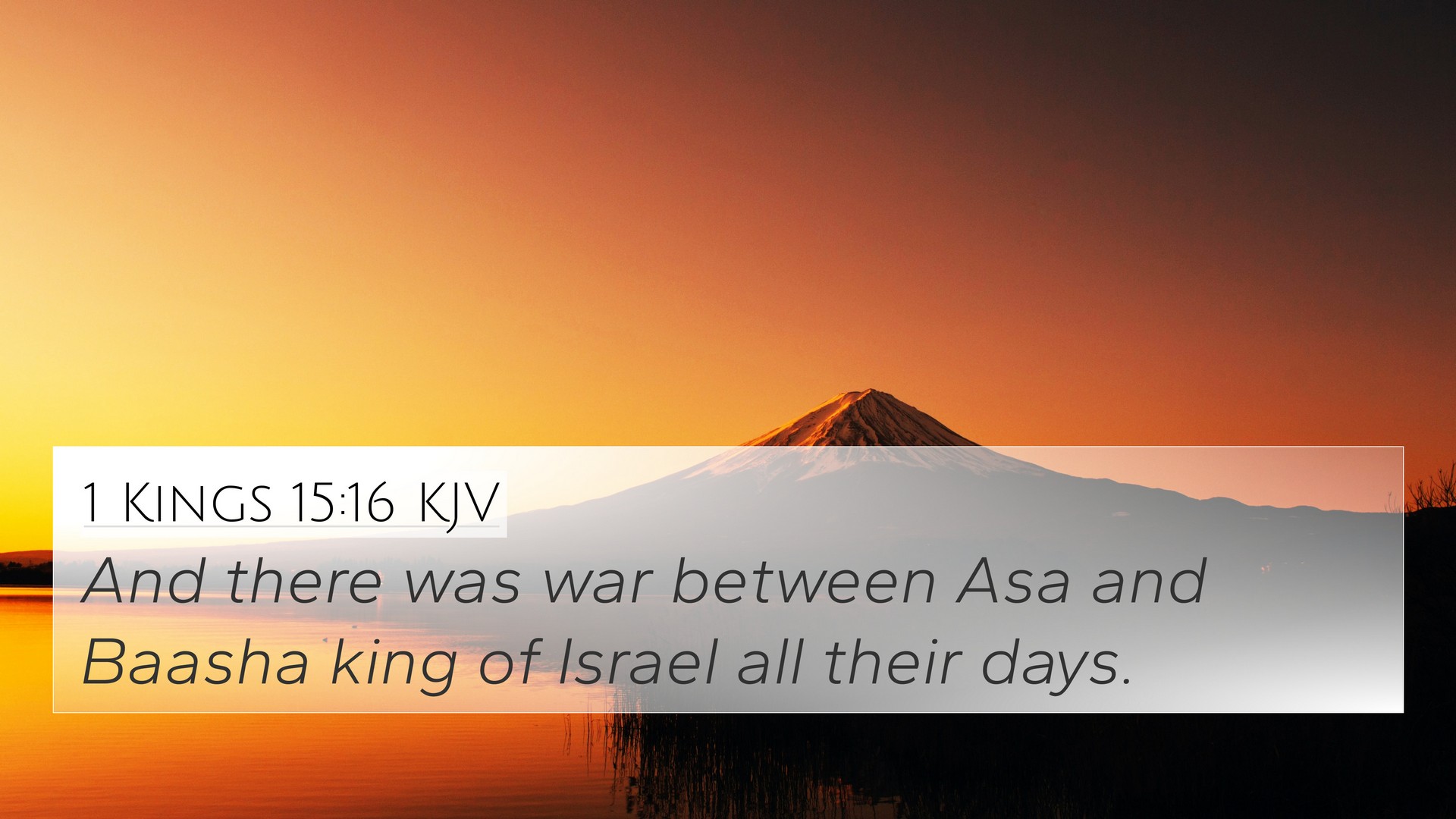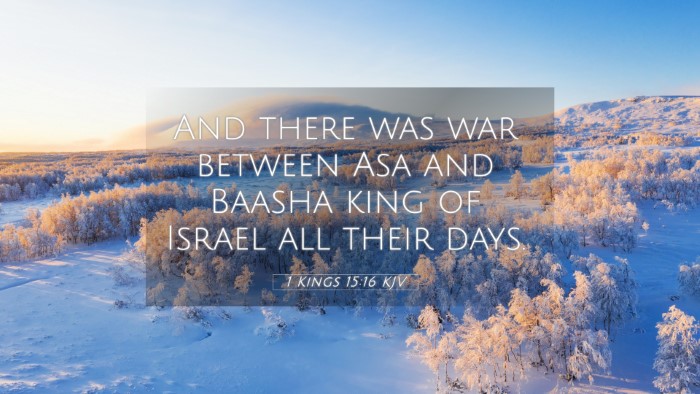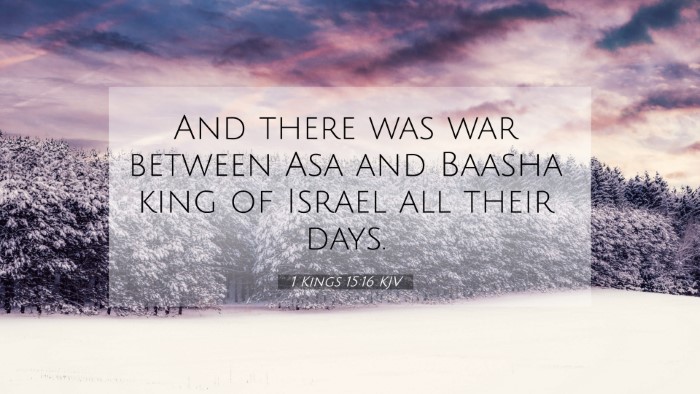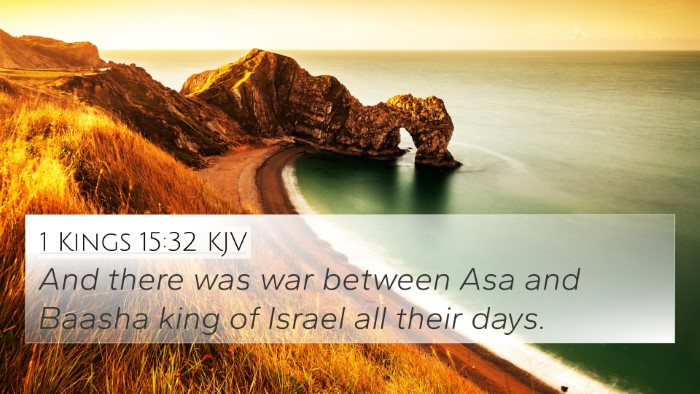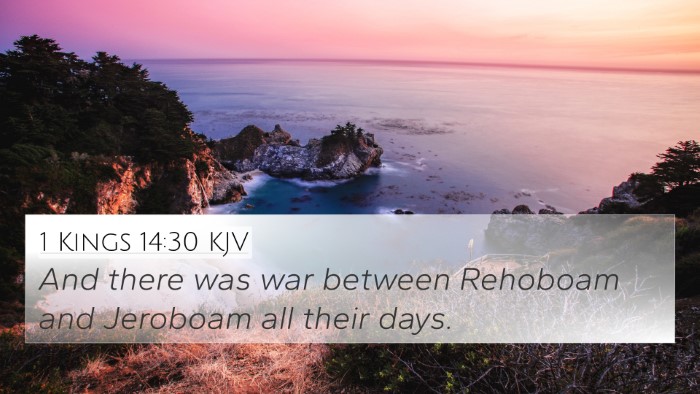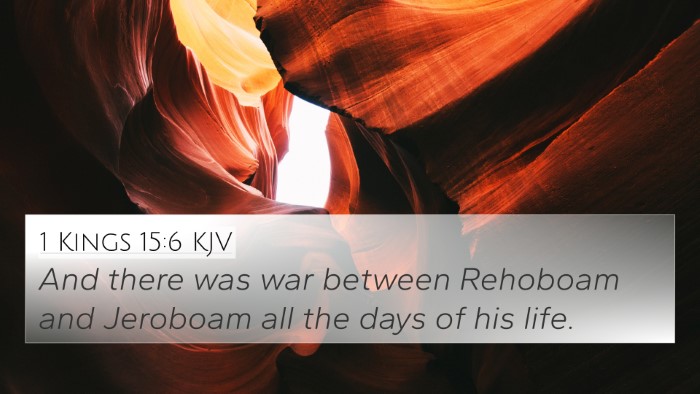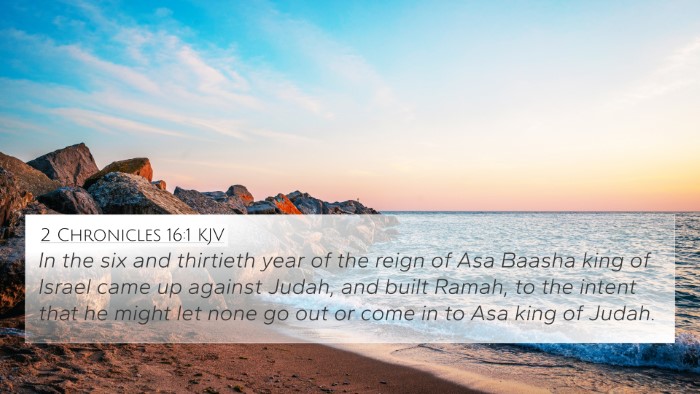Understanding 1 Kings 15:16
Verse: 1 Kings 15:16 - "And there was war between Asa and Baasha king of Israel all their days."
Commentary Overview
This verse illustrates the persistent conflict between Judah, under King Asa, and Israel, ruled by Baasha. The significance of this rivalry is deeply rooted in the histories and relationships involving the northern and southern kingdoms of Israel.
Historical Context
Asa's reign is marked by efforts to maintain religious reforms and alliances that threatened Baasha’s rule. The reference to "war" signifies not just military encounters but also the broader spiritual conflict between the worship of Yahweh in Judah and idolatry prevalent in Israel.
Insights from Commentaries
Matthew Henry
Henry highlights that this ongoing war reflects the consequences of Israel’s idolatry and Asa's commitment to God. The conflict serves as a backdrop for understanding the faithfulness of God to Judah and His judgment upon Israel.
Albert Barnes
Barnes points out that the wars between Asa and Baasha show the divine judgment on Israel for its sins. He emphasizes the role of both kings in shaping their nations' destinies and the implications of their actions on the people they ruled.
Adam Clarke
Clarke elaborates on the prevalent discord, stating that it serves as a narrative tool to illustrate God’s plans for His people. The constant warfare reflects deeper spiritual truths about reliance on God versus dependence on military might and alliances.
Thematic Connections
1 Kings 15:16 has several themes that resonate throughout the Bible. The ongoing battle is emblematic of the struggles between godliness and wickedness, God's sovereignty versus human agency in disunity among God's people.
Cross-References
- 2 Chronicles 14:1-6: Asa's reforms and military successes against Cushite invasions reflect his reliance on God.
- 1 Kings 12:25-33: The origins of the divided kingdom establish the context for Asa and Baasha's conflicts.
- 2 Chronicles 16:1-9: Asa's later actions against Baasha illustrate the importance of relying on God rather than human alliances.
- 1 Kings 14:30: Sets the stage for the national aspects of war and peace relevant to both kingdoms.
- 1 Kings 16:1-4: The prophetic judgment against Baasha serves as a continuous reminder of the divine narrative played out during Asa’s reign.
- Micah 1:1-5: A prophecy denouncing the sins that lead to conflict, connecting the judgment of God with the violence that ensues.
- Isaiah 7:1-2: The fear and political tensions in Judah echo the thematic elements of warfare present in Asa's and Baasha's relationship.
- James 4:1-2: Reflects on conflicts through spiritual lenses, encouraging believers to understand underlying reasons for discord.
- Romans 8:31: The assurance of God’s support provides a backdrop to understanding Asa’s initial reliance on God in his warfare.
- Revelation 19:11-16: Depicts the ultimate victory of God over conflict, linking spiritual warfare throughout history to its conclusion.
Conclusion
1 Kings 15:16 teaches about the consequences of sin and the importance of seeking God in times of conflict. Asa's war with Baasha serves as a reminder of the greater spiritual battles believers face today, reflecting the ongoing themes of allegiance to God versus following human ways.
Tools for Bible Study
- Bible Concordance: Use this to find keywords related to the conflicts in Kings.
- Bible Cross-Reference Guide: Helps identify parallel scriptures and deeper meanings.
- Cross-Reference Bible Study: A method to connect themes and narratives across scriptures.
- Comprehensive Bible Cross-Reference Materials: Utilize available resources to navigate the intertwining stories in the Bible.
- Bible Chain References: Create links between verses to build a broader understanding of a theme.
Inter-Biblical Dialogue
This verse richly illustrates the dialogue between various books, including prophetic writings that refer back to the history found in Kings, revealing the cohesive narrative of God’s faithfulness and justice across the Old and New Testaments.
